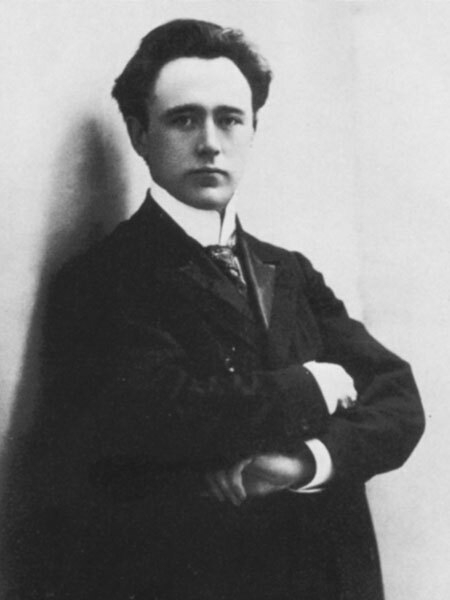Felix Weingartner (1863–1942)
Felix Weingartner als Felix von Weingartner, Edler von Münzberg, in Österreich geboren war eine vielseitige Persönlichkeit: Dirigent, Komponist, Klaviersolist, Musikschriftsteller und Pädagoge.
Bereits als Kind interessierte sich Weingartner für Musik und besonders für das Komponieren. Mit sechzehn Jahren veröffentlichte er seine ersten Werke, die Klavierstücke op. 1, op. 2 und op. 3. Auf Empfehlung von Johannes Brahms erhielt er daraufhin ein österreichisches Staatsstipendium. Nach dem ersten Musikunterricht in Graz ging der achtzehnjährige Felix Weingartner zum Kompositions- und Klavierstudium ans Leipziger Konservatorium und wurde schliesslich in Weimar Schüler von Franz Liszt. Mit Liszt verband ihn eine lebenslange Freundschaft. Ihm widmete Weingartner auch seine erste Oper „Sakuntala“ op. 8, der Liszt 1884 zur Uraufführung in Weimar verhalf. Nur aus finanziellen Gründen beschloss Weingartner nach seinem Studium, eine Stelle als Kapellmeister in Königsberg anzunehmen, denn er selbst sah seine Erfüllung im Komponieren.
Doch schon bald zeigte sich, dass Weingartner auch großes Talent zum Dirigieren hatte und der rasch einsetzende Erfolg verhinderte zunächst sein weiteres kompositorisches Schaffen. Nach Engagements in Danzig, Hamburg, Frankfurt und Mannheim wurde er erst achtundzwanzigjährig erster Kapellmeister der Berliner Hofoper und Dirigent der Sinfonieabende der Königlichen Kapelle, damals die erste Kapellmeisterstelle in Deutschland. 1907 trat er die Nachfolge von Gustav Mahler an der Wiener Hofoper an. Bereits vier Jahre später gab er jedoch die Leitung der Hofoper auf und konnte sich nun ganz den Wiener Philharmonikern widmen, die unter seiner Leitung weltweit Berühmtheit erlangten. Im Jahr 1927 nahm Weingartner die Stelle als Direktor des Konservatoriums und Leiter der Konzerte der Allgemeinen Musikgesellschaft in Basel an, die er bis 1935 innehatte.
Neben seiner ausgedehnten Tätigkeit als Dirigent reservierte sich Weingartner täglich die frühen Morgenstunden zum Komponieren, welches er als seine eigentliche Bestimmung ansah. Ebenso wie er als Dirigent den Schwerpunkt auf die Musik der Klassik und Romantik legte, so beeinflusste und prägte diese Musik ihn auch als Komponisten. Nach seiner stürmischen Wagner- und Lisztverehrung in seiner Jugend wandte er sich schliesslich einem klassizistischen Stil zu. Weingartners kompositorisches Werk ist umfangreich und umfasst ein breites Spektrum: sieben Symphonien, symphonische Dichtungen, Opern, Lieder und Kammermusik.
(Sonja Striebel im Booklet der CD „Weingarter, Symphonic Works I“, cpo 2004)









